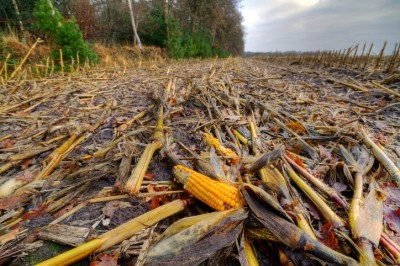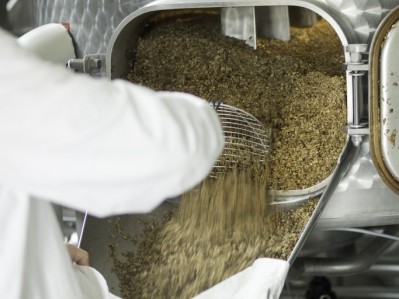Edible packaging set to tackle the ‘evil twins’ of food and plastic waste

The Barcelona-based start-up, created by researchers at the Polytechnic University of Catalonia, says extensive lab and feild trials have shown its edible coating reduces losses and rejection rate in fruit and vegetable production and keeps produce fresh tasty and healthy for longer. It preserves the smoothness, moisture and flavor of each product and keeps them away from microorganisms, preventing the fruit from spoiling before consuming it.
The formula of consists of three to four ‘100% natural ingredients’, only, with no chemicals and no food additives of any kind. When applied directly to the surface of food, the coating creates a semi-permeable barrier that controls respiration rate, reduces weight loss and prevents micro-contamination, prolonging the shelf-life. These coatings leave no residue and do not cause and harmful effects on the environment, making it a totally sustainable technology, the company claims.
In addition, the Bio2Coat edible coating improves the visual appearance, prevents fungal attack and preserves the nutritional value for consumers. And being natural, odorless and tasteless, the start-up claims the solution is more acceptable to consumers than other coatings in the market that use food additives such as E904 used for food preservation and presentation. "People won't buy fewer fruits and vegetables if it lasts longer. No, they will buy more," explained Bio2Coat co-founder Farayde Matta Fakhouri Co-Founder. "Consumers want this solution. One of the reasons they don't buy all the fruit and vegetabels they want is because of the short shelf life."
The edible coating (so far it has been tested on a wide range of fruits and vegetables) adds value across the whole food supply chain, the company claims, providing up to 15 days of shelf life extension, up to 50% weight loss, better appearance, colour and reduced environmental impact.
With the same formulation, the company has produced edible packaging to replace plastic in multiple applications that protects the food at the same time as it adds flavour and taste. For, example, it has produced a tomato-based packaging prototypes for rice and pasta which dissolves and is eaten after consumers put in boiled water. Another prototype is edible chocolate-based packaging for breakfast cereals, which dissolves in hot milk. It is hoped this dissolvable edible packaging will be able to be stored in shoppers’ cupboards for up to six months.
“We hope to solve two problems: food waste and plastic waste coming from packaging materials,” explained Fakhouri, who boasts 20 years of research in food science and engineering. “Nowadays, 1/3 of all food produced in the planet is wasted while only 25% of this amount could feed 800 million people. In regards to plastic, the production increased 270 times in the past 70 years and 91% of this plastic produced globally is not recycled and end up in landfills or as pollutants in water streams and in the ocean. Those problems are super relevant and urgent, and it will not be solved only by one solution but we hope to, at least, make a significant." difference.”
The start-up hopes to begin to roll out the patented technology to the food industry and retailers in Europe, the US and Brazil in a few months. Its plans will likely be helped after it was recently was chosen by start-up accelerator EIT Food as one of the winners of Europe’s most promising and innovative agri-food start-ups. “Without EIT Food we would not be here,” Fakhouri told us. “The program provides world-class training and coaching sessions with experts from all over the world. It connects you with the agro and food industry that can benefit from your solution and with entrepreneurs that have the same needs and aspirations you do, which is super motivating and helpful. It also gives you a toolbox with everything you need to know to successfully launch and manage your start-up. it is amazing how much we learned and how much we grew in this past year. Not to mention the great connections we made with industry and market experts, potential investors and potential customers.”
The company is now in a position to offer a practical solution at scale, she insisted. “Our process is ingenious and involves specific formulations and controlled parameters. Nevertheless, it is highly scalable as the individual process steps are common in the food industry, as well as the equipment needed. The raw materials are all food based and are abundant in nature so their availability and cost are not constraints. Our main line of product, edible coating to extend shelf-life of fruits and vegetables, is very easy to apply and leverages equipment that exist in the farms. And, finally, the price is at the same level as other post-harvest treatment methods.”



























